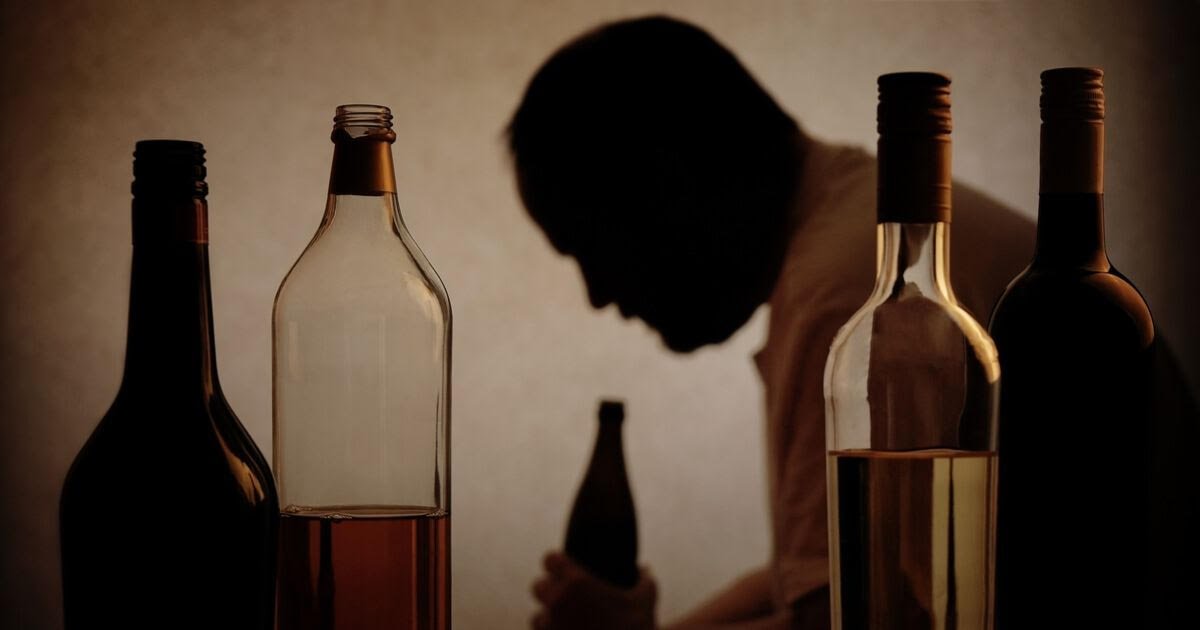Drinking to Early Death and Unsafe Health
In Nigeria, alcohol addiction has silently woven itself into the fabric of daily life, transforming from a coping mechanism into a public health crisis that devastates individuals, families, and entire communities. People turn to alcohol to numb depression, chase a fleeting high, or escape their realities, but the consequences are profound shattered lives, broken homes, and a society grappling with the fallout. This report by Sultan Rabiu delves into the human cost of alcohol addiction, highlighting its physical, social, and economic impacts, and calls for urgent action to stem this growing epidemic.
A Body Under Siege: The Physical Ravages of Alcohol Addiction
For those caught in the grip of alcohol addiction, the body becomes a battleground. The liver, a vital organ tasked with detoxifying the body, bears the brunt of chronic drinking. Hospitals are seeing more patients with yellowed eyes and swollen abdomen hallmarks of liver disease. Dr. Chikwe Ihekweazu, former Director-General of the Nigeria Centre for Disease Control, shared in an interview “Chronic alcohol use is a leading cause of liver disease in Nigeria, with cirrhosis and liver cancer rates rising alarmingly among heavy drinkers.” The kidneys, too, struggle to filter the toxins, leaving chronic drinkers vulnerable to kidney failure, a reality that fills hospital wards across the country.


Beyond organ damage, alcohol opens the door to cancer. It acts like a silent trigger, increasing the risk of cancers in the mouth, throat, esophagus, liver, and even breast tissue. Dr. Adamu Umar, President of the Nigerian Cancer Society, warned during the World Cancer Day event in 2024 “Alcohol consumption is a significant risk factor for cancer in Nigeria, yet awareness remains low.” The mind is not spared either.
In Ibadan, Dr. Olayinka Egbokhare, a psychiatrist at the University College Hospital said “Alcohol disrupts brain function, leading to memory loss and mental disorders like depression and anxiety, which often perpetuate the cycle of addiction.” These mental struggles dementia, forgetfulness, and emotional instability are a heavy burden for those already fighting to break free.
The body ages faster under this strain. In markets and motor parks across Nigeria, chronic drinkers often look decades older than their years, their skin weathered and their bodies frail. The immune system, overworked from constantly battling alcohol’s toxins, weakens, leaving cells to deteriorate prematurely, a phenomenon that’s become a grim reality for many.
Families Torn Apart: The Social Fallout of Addiction
Alcohol addiction doesn’t just harm the individual it tears through families like a storm. In a modest home in Abuja, a mother of three became a statistic in 2024 when her husband, intoxicated after a night of drinking, stabbed her during a heated argument. The children, now orphaned, were left to navigate a future marked by loss and instability. This story is not unique. Across Nigeria, alcohol fuels domestic violence, turning homes into battlegrounds where spouses and children suffer physical and emotional scars. Police stations frequently handle cases where alcohol-induced rage leads to broken bones, shattered trust, and, too often, broken lives.
The ripple effects are devastating. Marriages crumble under the weight of addiction, with divorce becoming a common escape for partners unable to endure the chaos. Families sink into poverty as breadwinners pour their earnings into bottles, leaving children hungry and school fees unpaid. Dr. Aisha Mohammed, a social worker in Lagos, said “Alcohol addiction drags families into poverty. When a breadwinner spends all their income on drinking, children go hungry, school fees go unpaid, and the cycle of deprivation continues.” In rural communities, where extended families rely on a single provider, the impact is even more profound, pushing dependents into child labor or early marriage as they struggle to survive.
A Society Under Strain: Violence, Crime, and Economic Loss
Alcohol often lights the fuse for violence. Men stagger out of bars, their judgment clouded, engaging in reckless acts spitting in public, stealing to fund their next drink, or crossing busy roads without a glance, leading to accidents that clog emergency rooms. Police stations tell a similar story. In 2023, the Nigerian Police Force reported that a significant portion of arrests for petty crimes like theft and public disturbances involved individuals under the influence, a statistic that underscores alcohol’s role in fueling crime.
Society feels the weight of this addiction in other ways. Hospitals in major cities are overwhelmed with patients admitted for alcohol-related injuries, from bar fights to road accidents, straining an already fragile healthcare system. Economically, the toll is staggering. Employers lament the unreliability of workers battling addiction, with many forced to terminate employees who can’t show up sober. A survey in Lagos, found that a majority of employers had let go of at least one worker due to alcohol-related absenteeism in the past year. This loss of productivity drains the economy, while the societal value of these individuals diminishes, as they become a burden rather than a contributor. Dr. Nkechi Okafor, a public health expert at the University of Lagos, captured this sentiment in an interview “Alcohol addiction turns individuals into a menace to society. They cannot contribute meaningfully, and their actions violence, crime, and dependency place a heavy burden on communities.”
Impact on The Next Generation
The impact of alcohol addiction stretches beyond the present, casting a long shadow over the next generation. In Nigeria, where many adults support extended families, an alcoholic breadwinner’s descent into poverty affects children and dependents most acutely. Children of alcoholics often drop out of school, unable to afford fees, and face heightened risks of malnutrition and poor health as household resources dwindle. Young girls are married off early to ease the financial strain, while boys turn to street hawking, perpetuating a cycle of deprivation that traps families for generations.
A Call to Action: Breaking the Cycle of Addiction
Alcohol addiction in Nigeria is a public health crisis that demands immediate action. The physical devastation liver and kidney diseases, cancer, dementia, and premature aging is matched by the social and economic toll: broken families, violence, crime, and poverty that ripple through generations. The government must act swiftly to break this cycle by funding accessible addiction treatment programs and establishing rehabilitation centers in every state. Public awareness campaigns can shift perceptions, reducing stigma and encouraging those struggling to seek help. Healthcare providers should integrate alcohol screening into routine visits, catching at-risk individuals before addiction takes hold. Stricter regulations on alcohol sales, such as higher taxes and limited advertising, can curb accessibility, especially among the youth. Communities, too, must rally to support recovery, creating a culture where seeking help is a sign of strength, not shame. Nigeria cannot afford to let this silent epidemic claim more lives action is needed now to heal a nation on the brink.



